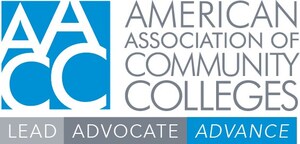
Community Colleges Call For Better Documentation of Worker Outcomes
Producing College- and Career-Ready Students Requires Complete and Coordinated Data
WASHINGTON, March 16 /PRNewswire-USNewswire/ -- Community colleges are playing a pivotal role in America's economic recovery as they help out-of-work Americans train for new jobs, but they are hampered in knowing the best kinds of training to provide and how it ultimately works for students by a lack of complete data and full access to that data, according to a new policy brief issued today by the American Association of Community Colleges (AACC).
"Federal legislation makes assumptions about the linkages between education and workforce outcomes, and the data needed to document those outcomes," said Dr. George R. Boggs, president of AACC. "If the colleges are to be accountable for outcomes, as policymakers continue to call for, we should require comprehensively funded, collaborative, and coordinated data collection, so the best policy decisions can be made that help colleges get Americans into the workforce."
In the policy brief issued today, Moving Success From the Shadows: Data Systems That Link Education and Workforce Outcomes, AACC discusses efforts to establish postsecondary longitudinal data systems that accurately track student success from the classroom into the workplace.
Knowing what educational programs and factors contribute to successful employment for students can help states and colleges further improve their educational systems and make them more responsive to employer needs.
But data on these key linkages between education and workforce outcomes are often lacking or suffer from a lack of coordination, say researchers in the policy brief. The net result of this failure is legislative policy that pays lip service to accountability, but fails to give funding to the higher education sectors that most need it for measurement.
Even though a half of a billion dollars has been spent or is pending distribution through State Education Agencies for the express purpose of building longitudinal data systems on student success, this funding went primarily to K-12 agencies, not to colleges with job training programs. While the Higher Education Opportunity Act of 2008 and the proposed American Graduation Initiative encourage the establishment of postsecondary education data systems, federal funding for the former has yet to be appropriated and the latter has yet to be authorized.
Providing colleges with access to data, by fostering collaboration across agencies could help the situation, says AACC. Federal and state legislation is needed to explicitly authorize the sharing of workforce-related data to colleges and their representing agencies, while ensuring adequate privacy protections. The substantial institutional reporting burdens associated with federal programs and the cost of gathering such data would be greatly reduced if colleges were given the ability to more fully interact with existing federal and state education data systems and exchange partnerships that track individual workforce outcomes – so a student's pathway from classroom to workforce could really be charted and followed.
More comprehensive employment data also needs to be gathered, says the policy brief. Collecting individual education and workforce outcome data across state and federal departments, agencies, and partnerships must take into account the role that individual choice plays in following a given career path. Currently, employment data are not available for all categories of employment. Collecting data that truly reflects occupational success for any given trainee or student is a complicated issue that merits further research.
"We hope that our policy makers at both federal and state levels will seriously consider our recommendations for beefing up the accountability system that tracks the linkages between the campus and the workplaces," said Boggs. "With so many Americans relying on community colleges to get them back to work, and with the federal government investing billions of dollars in re-training and job creation initiatives, we should be evaluating our results and informing our future decisions with the best data possible."
Link to the full report at http://www.aacc.nche.edu/Publications/Briefs/Documents/successshadows_03162010.pdf.
For 90 years, the AACC has been the leading advocate for the nation's community colleges, which currently number more than 1,173 and serve close to 12 million students annually. Its membership comprises 90% of all public two-year colleges – the largest, most accessible, most diverse sector of U.S. higher education. As institutions committed to access, community service and lifelong learning, community colleges have long-focused on the needs of adults who are already in the workforce, many of whom are seeking new skills and knowledge for changes in their lives and careers. To learn more about the AACC and its member colleges, visit www.aacc.nche.edu.
The research was funded in part by Lumina Foundation for Education. Lumina Foundation for Education works to ensure that 60 percent of Americans are college-educated by 2025.
SOURCE American Association of Community Colleges







Share this article